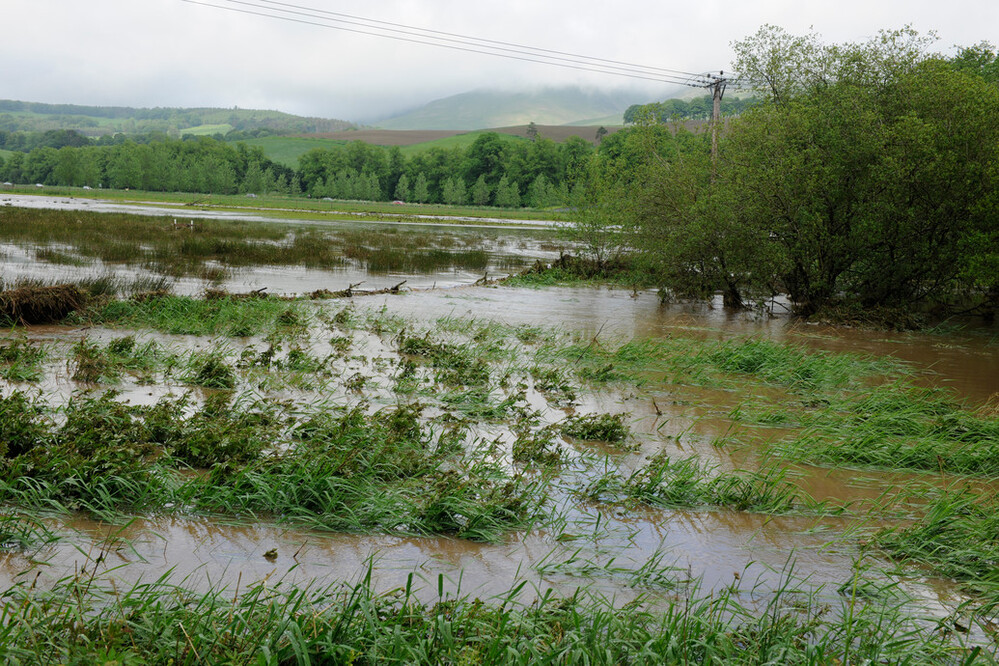New £38 million project to reduce the impact of floods and droughts
BGS will take a leading role in efforts to better predict the location and effects of extreme weather events.
02/09/2024 By BGS Press
Extreme weather events are projected to become more common in the UK, costing £750 million per year (Bates et al., 2023). A new, £38 million infrastructure project will enhance the UK’s resilience to floods and droughts and will include open-air laboratories across the UK and a large-scale, live environmental data bank.
The project, titled ‘Floods and droughts research infrastructure’ (FDRI), will provide infrastructure to allow aspects of the hydrological cycle in specific locations in England, Scotland and Wales to be tracked. The data produced can be used alongside artificial intelligence (AI) and machine-learning technology to model present conditions and forecast the impact of extremes.
Improving our ability to analyse UK environmental data with models and AI will:
- improve the prediction of flood and drought risk
- enable the creation of better, more cost-effective infrastructure
- allow more accurate response to water supply demands
Monitoring activities will be coordinated and innovation better directed through the network that the FDRI project will create. It will also create a near real-time data bank with outdoor laboratories in three catchments: the Severn, the Chess (Thames) and the Tweed. This will be achieved by deploying instruments for observing subtle changes in the water environment, such as:
- evaporation
- soil moisture
- weather
- groundwater
- river flow
It will also provide new digital solutions to support data and help build capacity in the hydrological community through training and skills sharing.
We are delighted to be part of this landmark project, which will provide the UK with revolutionary solutions to reduce the impact of floods and droughts.
Each year, dealing with the impact of flooding and droughts costs the UK around £750 million. It is through increased resilience and advanced prediction capabilities that the nation can reduce this cost and better protect at-risk communities.
Alan MacDonald, head of BGS Groundwater.
Funding
The £38 million project has been awarded funding by the UKRI/Natural Environment Research Council (NERC). NERC and the UK Centre for Hydrology & Ecology will lead the project, with contributions from BGS, Imperial College London and the University of Bristol.
Earth’s changing climate is increasing the number of extreme floods and droughts, causing environmental, societal and economic damage. This investment will transform the way we can forecast these events by building data and monitoring capability.
NERC is helping to respond to climate challenges with research and innovation investments that will accelerate the green economy and deliver solutions to national priorities.
Prof Louise Heathwaite, executive chair of UKRI/NERC.
The project will work closely with organisations in the environmental and government sectors, including the Environment Agency, to build modelling and help prepare for severe weather.
Reference
Bates, P D, Savage, J, Wing, O, Quinn, N, Sampson, C, Neal, J, and Smith, A. 2023. A climate-conditioned catastrophe risk model for UK flooding. Natural Hazards and Earth System Sciences, Vol. 23, 891–908. DOI: https://doi.org/10.5194/nhess-23-891-2023
Notes for editors
The UKRI Natural Environment Research Council (NERC) is the custodian of the UK’s environmental science. It ensures the UK has the diverse talent and skills, the facilities, and the infrastructure needed for world-leading research. NERC researchers diagnose environmental issues, mitigate risk, and support solutions to major challenges such as air quality and climate change for the UK and beyond.



